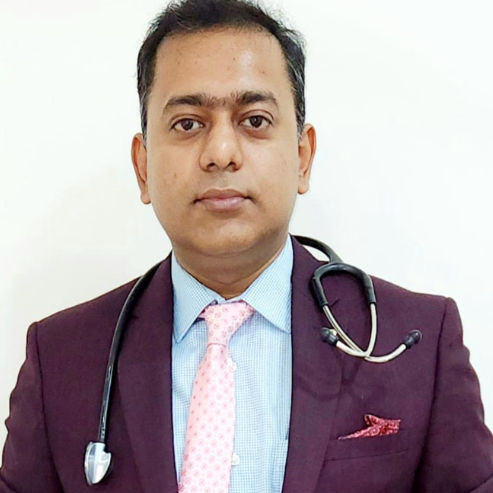Symptoms, Causes, and Treatments for Tonsil Cancer
Learn about the symptoms, causes, diagnosis, and treatment options for tonsil cancer, along with prevention tips, recovery advice, and when to seek medical care.


Tonsil cancer is a type of throat cancer that develops in the tonsils, which are two small glands located at the back of your throat. While it can be a serious condition, early detection and treatment can significantly improve outcomes. If you or a loved one are concerned about tonsil cancer, understanding its symptoms, causes, and treatment options can help you take the right steps toward better health.
What Are the Symptoms of Tonsil Cancer?
Tonsil cancer may not always cause noticeable symptoms in its early stages, but as it progresses, the following signs may appear:
• Persistent sore throat – A sore throat that doesn’t go away with usual treatments.
• Difficulty swallowing – Feeling pain or discomfort while eating or drinking.
• Ear pain – Unexplained earache, often on one side.
• A lump in the neck – Swollen lymph nodes due to cancer spreading.
• Unexplained weight loss – Losing weight without trying.
• Bad breath – Chronic foul odor from the mouth.
• Voice changes – Hoarseness or a change in voice quality.
• Bleeding in the mouth – Blood in saliva or when coughing.
If you experience any of these symptoms for more than two weeks, it’s important to consult a doctor for further evaluation.
What Causes Tonsil Cancer?
Tonsil cancer is often linked to certain risk factors, including:
1. Human Papillomavirus (HPV) Infection
HPV, especially HPV-16, is a leading cause of tonsil cancer. This virus is sexually transmitted and can affect the throat.
2. Tobacco and Alcohol Use
Smoking cigarettes, chewing tobacco, or heavy alcohol consumption increases the risk. Combining both tobacco and alcohol further raises the chances.
3. Weak Immune System
People with weakened immune systems (due to conditions like HIV or immunosuppressive medications) are at higher risk.
4. Poor Oral Hygiene
Chronic gum disease or poor dental health may contribute to throat cancers.
5. Age and Gender
Men over 50 are more likely to develop tonsil cancer, though younger individuals with HPV can also be affected.
How Is Tonsil Cancer Diagnosed?
If your doctor suspects tonsil cancer, they may recommend:
• Physical examination – Checking the throat and neck for lumps.
• Biopsy – Removing a small tissue sample for testing.
• Imaging tests – CT scans, MRIs, or PET scans to determine the cancer’s spread.
• Endoscopy – A thin tube with a camera to examine the throat.
Early diagnosis is crucial for effective treatment, so don’t delay seeking medical advice if you have concerning symptoms.
Get Your Symptoms Checked now
What Are the Treatment Options?
Treatment depends on the cancer’s stage, location, and overall health. Common approaches include:
1. Surgery
• Removing the tumor and possibly affected lymph nodes.
• Minimally invasive robotic surgery may be an option for early-stage cancers.
2. Radiation Therapy
• High-energy beams target and destroy cancer cells.
• Often used for early-stage cancers or after surgery.
3. Chemotherapy
• Drugs that kill cancer cells, often combined with radiation (chemoradiation).
• Used for advanced cases or when cancer has spread.
4. Immunotherapy
• Boosts the immune system to fight cancer (for certain HPV-related cancers).
5. Targeted Therapy
• Drugs that specifically attack cancer cells with fewer side effects.
Your doctor will create a personalized treatment plan based on your condition.
Lifestyle Tips for Prevention and Recovery
While not all cases can be prevented, these steps can reduce risk and support recovery:
• Quit smoking and limit alcohol – Major risk factors for tonsil cancer.
• Practice safe sex – Reduces HPV exposure.
• Maintain good oral hygiene – Regular dental check-ups can help.
• Eat a healthy diet – Fruits, vegetables, and whole grains support immunity.
• Stay hydrated – Helps with throat comfort during treatment.
• Follow-up care – Regular check-ups after treatment to monitor recovery.
When to See a Doctor
If you notice persistent throat pain, difficulty swallowing, or unexplained lumps, don’t ignore them. Early detection improves treatment success.
Need expert advice?
You can book a consultation with an ENT specialist or oncologist through Apollo 24|7 for timely diagnosis and care.
Final Thoughts
Tonsil cancer can be challenging, but awareness and early action make a big difference. If you have concerns, reach out to a healthcare professional—your health matters!
Would you like help finding the right specialist or scheduling a test? Visit Apollo 24|7 for easy online appointments and expert guidance.
Consult Top Oncologist
Consult Top Oncologist

Dr Sunita Samleti
Oncologist
18 Years • M.D. (Pathology)- TN Medical College, Mumbai University, Mumbai, Mar 2005 M.B.B.S. Grant Medical College, Mumbai University, Mumbai, Oct 1999
Chinagadila
Apollo Hospitals Health City Unit, Chinagadila

Dr Gowshikk Rajkumar
Oncologist
10 Years • MBBS, DMRT, DNB in Radiation oncology
Bengaluru
Apollo Clinic, JP nagar, Bengaluru

Dr. Sanchayan Mandal
Oncologist
17 Years • MBBS, DNB Raditherapy, DrNB Medical Oncology
East Midnapore
VIVEKANANDA SEBA SADAN, East Midnapore

Dr.sanchayan Mandal
Oncologist
17 Years • MBBS, DrNB( MEDICAL ONCOLOGY), DNB (RADIOTHERAPY),ECMO. PDCR. ASCO
Kolkata
Dr. Sanchayan Mandal Oncology Clinic, Kolkata

Dr. Gopal Kumar
Head, Neck and Thyroid Cancer Surgeon
15 Years • MBBS, MS , FARHNS ( Seoul, South Korea ), FGOLF ( MSKCC, New York )
Delhi
Apollo Hospitals Indraprastha, Delhi
(25+ Patients)



